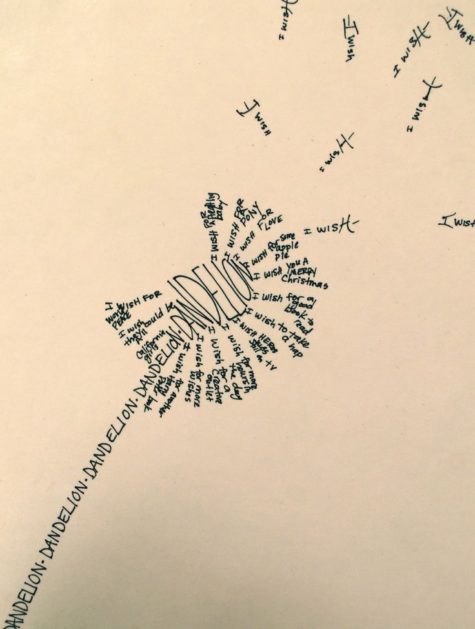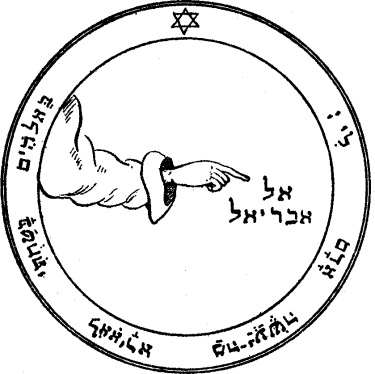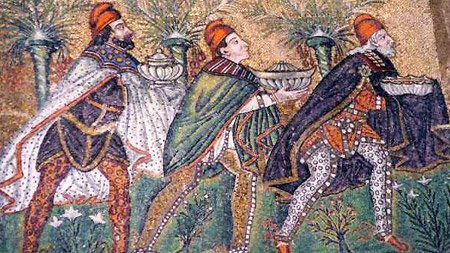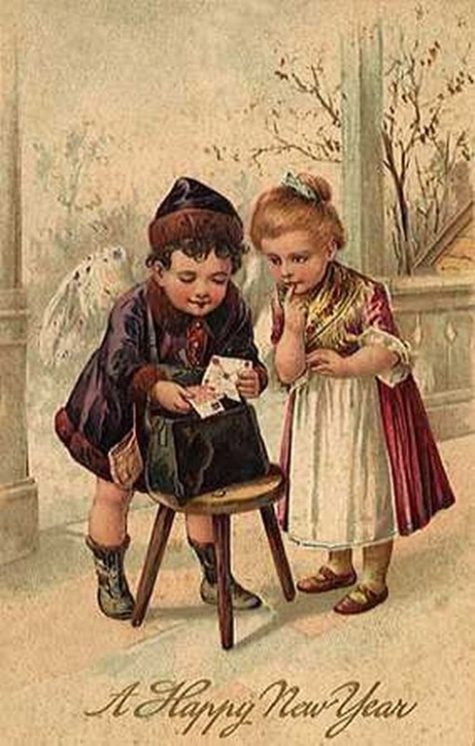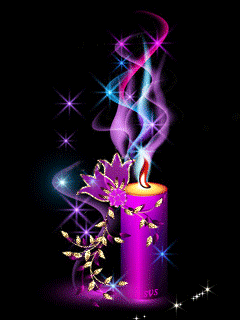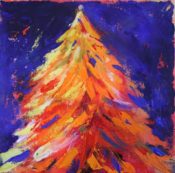Monthly Archives: January 2017
Weather Divinations for Imbolc
Imbolc (Feb 2) was traditionally a time of weather divination, and the old tradition of watching to see if serpents or badgers came from their winter dens may be a forerunner to the North American Groundhog Day. A Scottish Gaelic proverb about the day is:
Thig an nathair as an toll
Là donn Brìde,
Ged robh trì troighean dhen t-sneachd
Air leac an làir.
“The serpent will come from the hole
On the brown Day of Bríde,
Though there should be three feet of snow
On the flat surface of the ground.”
Imbolc was believed to be the day the Cailleach — the hag of Gaelic tradition — gathers her firewood for the rest of the winter. Legend has it that if she wishes to make the winter last a good while longer, she will make sure the weather on Imbolc is bright and sunny, so she can gather plenty of firewood. Therefore, people would be relieved if Imbolc is a day of foul weather, as it means the Cailleach is asleep and winter is almost over and spring is on it’s way. Read more here: Là Fhèill Brìghde.
Other weather divinations include:
- “Red sky at night, sailor’s delight; red sky at morning, sailor take warning”. This weather rhyme is a quick way to remember that dry particles in the air causes the sky to look red. Dry air in the west (the night sky), the weather will be dry. If the sky is red in the east (morning sky), wet weather is headed your way.
- “Circle round the moon, rain or snow soon.” A “circle” around the moon indicates moisture in the air, bringing precipitation.
- Catch the cat cleaning it’s ear’s on Imbolc? Tradition says that this means a storm is coming.
- Check out the pine cones. If they are closed, it means wet weather is on it’s way. Open cones predict dry weather.
Crickets have been shown to be very good indicators of air temperature. Count the number of chips a cricket makes for 14 seconds. Add 40 and the sum of the two numbers will equal the temperature to within 1 degree 75% of the time.
From: Wikipedia and Examiner.com
Literomancy
I didn’t find much about this subject. Most of the links I followed shared the same information from wikipedia as I have shared below. My own thoughts on the subject are as follows:
This type of divination truly relies on the individuals abilities and confidence. If you’d like to try it, pay attention to the first words, ideas, thoughts, images and impressions that come to you as you look at the word or words. What do they say about the person, the situation… how does it feel when you think about it.
If nothing comes right away, you can ask yourself the following questions:
- If the word was an object, and I picked it up, how would it feel?
- Is it heavy or light? Bright or dull? Colorful or black and white?
- Is there a story associated with it? And if not why not? And if so, what would it be?
- If this word was an animal… how would it sound? Which animal would it be? What would it do?
Allow yourself to be open to any possibility, no matter how absurd or outrageous. Take notes and write down your impressions. Try to engage all of your senses. Sight, Taste, Smell, Sound, Touch … etc.
From wikipedia:
Literomancy, from the Latin litero, “letter”, mancy, “prophecy”, is a form of fortune-telling based on written words, or, in the case of Chinese, characters. A fortune-teller of this type is known as a literomancer.
When practicing literomancy, the client puts up a subject, be it a single character or a name. The literomancer then analyzes the subject, the client’s choice of subject or other information related to the subject, along with other information he sees in the client or that the client supplies to arrive at a divination.
Some literomancers can read the curves and lines of a signature as signed by an individual, just as a professional handwriting analyst might, but uses instinct and divination techniques rather than applied analysis skills.
Literomancy is practised in Chinese-speaking communities and known as cèzì (traditional Chinese: 測字; simplified Chinese: 测字). The subjects of a literomancy are traditionally single characters and the requestor’s name (Chinese believe that the name can affect one’s destiny). In modern times, elements such as foreign words or even more recently, e-mail addresses and instant message handles have come into use as a subject.
Notarikon
Notarikon (Hebrew: נוטריקון Noṭariqōn) is a method of deriving a word, by using each of its initial (Hebrew: ראשי תיבות) or final letters (סופי תיבות) to stand for another, to form a sentence or idea out of the words. Another variation uses the first and last letters, or the two middle letters of a word, in order to form another word. The word “notarikon” is borrowed from the Greek language (νοταρικόν)), and was derived from the Latin word “notarius” meaning “shorthand writer.”
Notarikon is one of the three ancient methods used by the Kabbalists (the other two are gematria and temurah) to rearrange words and sentences. These methods were used in order to derive the esoteric substratum and deeper spiritual meaning of the words in the Bible. Notarikon was also used in alchemy.
Here is an example:
First — write out your goal using as few words as possible; yet, keeping the focus clear. Here are a few examples:
- Answers come easily to me = ACETM if just using the first letter of each word.
- Psychic ability is my gift = PCAYISMYGT if using the first and last letters in each word.
- Wisdom is within me = DOISTHME if using the two middle letters in each word.
- I Understand What To Do = IUWTD if just using the first letter of each word
- The Path Ahead Becomes Clear = TEPHADBSCR if using the first and last letters in each word.
- Clarity Comes Quickly = AROMIC if using the two middle letters in each word.
The letters become a sigil of power that you can use in a variety of magickal applications. Only you know what the letters stand for; therefore, no one can destroy your intent with doubt. (Except you, of course.)
This type of sigil works well with other images. For example, you may wish to draw a circle around the letters and add pictures, other sigils such as an Ankh (life), a Pentacle (protection), or the Six-Rayed Star (manifestation). You may prefer to use appropriate colors in your design. Remember to write your full name on the reverse side of the talisman.
Your next step is to empower your Notarikon, and here are the guidelines (which of course, can be changed depending upon your training and your belief system):
- Always include and say aloud divinity during the activation.
- Always say aloud precisely what you desire and the power you are calling on.
- Always include and say aloud the element or elements pertaining to the request. (Example: By the Power of Great and Mighty Mars, Element of Fire…)
For example:
If you are a Pisces, or doing this ritual when the Sun or Moon is in Pisces, you can call upon the Spirit of the Universe (you can change this), by the power of Jupiter (which rules Pisces) and the element of Water. (Pisces’ element is water). Alternatively, you could call upon the power of The Invincible Sun and the element of Fire… etc. Think about this, and make it your own.
A Basic Ritual:
- Cleanse and create sacred space.
- Cast a circle if you like.
- Create your talisman.
- Bless it with a dab of holy water or oil.
- Call upon the Spirit of the Universe, by the power of (your choice) to: insert your desire here.
- As you do this, rub the talisman in your hands, then begin blowing on it softly, running the energy from the field of potential around you into the talisman.
- Rock back and forth if you like.
- Let the experience be free flowing.
- When you are finished (you’ve lost the thought), draw an equal-armed cross on the talisman to seal it and announce that it is sealed.
- Carry the talisman with you, place under a candle for further empowerment, or put in a conjuring bag until you desire has manifested.
- If you have called upon the element of water for assistance, when it is time to deactivate the talisman, put it under running water, see the light in your mind that is around the talisman dissipate, and then throw it away. For the element of fire, you might burn the talisman… etc.
Onomancy
Onomancy comes from the Greek onoma (name), and manteia (prophecy). Onomancy is an old-fashioned kind of fortune telling based on a person’s name. This form of divination was popular in the Late Middle Ages, usually following practices of Gematria (numerology). Earliest recorded use: 1603.
One theory suggests that the analogy between men’s names and their fortunes may have originated with Pythagoreanism.
There were two cardinal rules in the science of onomancy. The first concerned the vowels within a man’s name. If there was an even number in the name, then there was something amiss in his left side. If the vowel were uneven, this signified a similar affliction in his right side.
The second rule involved the numeral numbering of all the letters within a name. This rule was often used to predetermine the winner of two combatants. The person having the name in which the letters added up to the greater sum was always picked to be the winner. This was how Achilles was chosen to triumph over Hector.
The belief in a connection between luck and a person’s name is an old one. During the heyday of onomancy, a fortune teller might ascribe meaning to the number of vowels in your name or the total number of letters. It was also common to give each letter a number value, and to add up the total number of a person’s name.
It was also said that if three women with the same name sit at a table, one of them will be married within the year.
Some parents name their children after careful consideration of onomancy to ensure the best possible future for them. Some people alter the spelling of their names or adopt a new name in an effort to bring good fortune. Science fiction writer Isaac Asimov wrote a short story, “Spell My Name with an S”, with this theme. The story was inspired by his frustration in having to ask people to spell his name (pronounced AZ-uh-mof) correctly.
Here’s a link to a Onomancy word generator – Seimei Handan Generator. This generator is a system that analyzes the number of strokes in each letter of the name. Based on those numbers, it then displays the word that gives oneself the most impact. I found it interesting, and maybe it will give you some ideas of your own.
Dictiomancy
Dictiomancy is a form of divination by using a dictionary.The most common way to use this form of divination is to ask a question, or pose a situation or scenario, and then open the dictionary at random. The word on which one’s finger rests will have special applicability to the question posed.
This can also be done in a more definitive way by dividing your situation into three sections:
- Past
- Present
- Future
Or alternatively, you can ask questions such as:
- How did this happen?
- Why did this happen?
- What can I do about it?
- Where should I look for answers?
As with any form of divination, it is important to get centered and focused before asking the question. Be specific. Also, I would recommend writing the question down. This is very helpful, particularly when the answers given require some thought in order to figure them out.
If the word you receive makes no sense at all to you, try separating out the letters and making an anagram.
Epiphany and Twelfth Night Divinations
Epiphany or Twelfth Night falls on the 12th day of Christmas, Jan 5. Here are some old divinations and predictions for this night.
If a Danish girl wishes to see her future husband, she must repeat the following verse before going to bed on the eve of Epiphany: “Ye three holy kings to you I pray, That ye to-night will let me see, Whose cloth I shall spread, Whose bed I shall make, Whose name I shall bear, Whose bride I shall be.”
Here are some more:
- Whatever is dreamed during the twelfths will come to pass in the twelve months of the year.
- Those who wear linen made from yarn spun during the twelfths will be devoured by wolves.
- On twelfth-night in Scotland a board is covered with cow’s dung, candles set in it, and sprinkled with ash to make them light easily. They are then lighted, each being named for someone present, and as each dies, so will the life of the owner.
- The twelve days after Christmas make the almanac for the year.
- Tis thus believed in Trinity Bay, New Bedford, Mass., and Nova Scotia. In Nova Scotia it is said that the first seven days of January foretell the first seven months of the year.
New Years Divinations
Some Albanian tribes celebrate their New Year on the first of September, and everything that happens during the day, presages the happenings of the months of the year, as to whether they will be lucky or not.
On New Year’s day dip your thumb seven times in salt and put in your mouth all that rests on the nail. You will dream that your future husband or wife will bring you water. (Persia.)
On New Year’s night, it was an old Welsh custom with the wise and courageous old men of the parish to sit up all night in the church porch. On that night, it was said, a voice, emanating from beneath the altar table, pronounced the names of those who should die within the coming year.
If a woman dies first in the year, then the greatest mortality during the year will be amongst women; and vice versa if a man dies first. (Gloucestershire, England.)
On New Year’s eve, the Gurians in Russia place small pitchers of wine in each of the bed-rooms of the family; if in the morning the wine has increased, the harvest will be abundant; but if the wine is lessened, they will have bad luck that year.
During the time that the male Jews are at the synagogue on the night of the tenth of the month Tisri (Yorn Kippur, the day of atonement), the women light the candles and lamps at home, and according as the light burns prognosticate good or evil fortune.
If your first caller on New Year’s day is a male, you will have good luck and many friends; if a female, bad luck and few friends.
Turn your pillow at midnight of the thirty-first of December, and you will dream of the one you are to marry.
If the sun shines on New Year’s day, it is a sign that the flax will be straight.
He who steals on New Year’s, can steal safely for a year.
Every Chinaman must perform the extraordinary act of taking a bath on New Year’s day. To fail in this would be a bad sign.
The Chinese put potatoes in water on New Year’s eve and prognosticate their fortunes by the way they grow. If they are not thrifty they will meet with trouble during the year.
At midnight on New Year’s the Japanese build small fires on the floor of their houses and from the manner in which the flames arise, foretell what will be their luck during the coming year.
At Liege, Belgium, it is a bad sign if a little girl presents you the first wishes for a happy New Year, but lucky if it is a boy.
It is an old Dutch superstition that, if you want to marry the girl you love, your voice must be the first one she hears, and your face the first she sees, on New Year’s morning.
Venetians consider it very important to notice whom you meet the first thing on New Year’s day. If it is a man, you will have good luck, if a woman, bad luck; if a priest, you will die within the year; if a policeman, you will have litigation.
The first person of the opposite sex you meet on New Year’s day will bear the Christian name of your future partner.
If ice melts on the 1st of January, it will freeze the 1st of April.
In one part of modern Greece all in the house go out early on New Year’s morning each bearing a branch on which the leaves are well dried. These they cast on the open fire, each wishing at the same time good luck to the family. The greater the fire, the better the augury.
On New Year’s eve take your hymn-book to your bedroom, blow out the lamp, open your book and mark a hymn (in the dark), put it under your pillow, and sleep on it. Next morning read the hymn, and its text will indicate the events of the year.
Your conduct on New Year’s day is a forerunner of your conduct all the year.
It is said that whatever the experience of a person is on New Year’s day, so it will be all the year, either tears or smiles.
In Scotland, the first person who comes to the house on New Year’s day will govern the luck of the house for the year, and in this belief, the “first foot,” is carefully watched.
In Transylvania on New Year’s eve the young men of the family bind together as many wreathes as there are persons in the house and throw them over the roof. Those that fall indicate the ones who will die that year.
Lay a green ivy leaf in a dish on New Year’s night, cover it with water and set it in a safe place until the fifth day of the year. If the leaf is then still green and fair, you will be safe from any sickness all the year; but if you find black spots on it, you may expect sickness.
In Pomerania and also in this country, young ladies believe that if they rapped at a poultry-house door at midnight on New Year’s eve, and the cock cackled first, they would surely be married that year; but if the hen cackled first, they would remain maids.
“On New-Year’s Day
Take out and then take in,
Bad luck will begin:
Take in, then take out,
Good luck will come about.”
On New Year’s eve, if a person wishes to know his fate during the coming year, he must go into the open air with a psalm book in one hand, and a piece of silver in his mouth. He must allow the book to fall open, and if it opens at the death psalm he will die; if it opens at a bridal psalm, he will marry; and whatever else it opens to, will indicate his fate. (Sweden.)
A “plane-soled” or “flat-footed” person is considered in Scotland a sanctimonious person and unlucky to meet on New Year’s day; while a hearty, merry fellow is good luck. It is necessary for all to drink every drop in the glass presented, and eat all of the bread given on that day, for good fortune. If anything unusual takes place on that day, it is noted and talked of all the year, so important to the village fortunes are the events of New Year’s Day.
In Turkey, if a stranger visits you on New Year’s day he must go to the hen-house and place an egg under a hen. If she does her duty and sits upon it the stranger is auspicious and is feted. It is called “the lucky foot.”
“If New Year’s-eve night wind blow south.
It betokened warmth and growth,
If west much milk and fish in the sea,
If north much cold and storms there’d be,
If east the trees will bear much fruit
If north east Bee it, man and brute.”
On New Year’s eve the Italian maiden places in one corner of her bed room a thimble, in another water, in a third ashes, and in the fourth a ring. Upon waking in the morning if she sees the ring first, she will be married that year; if she sees the water first, the year will be unlucky; if the thimble, fortune will smile on her; if the ashes, she will die.
On New Year’s morning take the Bible, lay it upon the table, open it and place your finger on the page at random. The verse upon which your finger touches will give some idea as to your future for the coming year.
The first baking after New Year’s day, make as many little cakes as there are people in the house, give each a name, and pick a hole in it with your finger; if any one’s hole gets baked up, he or she will die.
“With business is the year auspiciously begun:
But every artist, soon as he has tried.
Works but a bit, then lays his work aside.”
As a weather guide the first day of the year is much regarded. East wind on New Year’s day forecasts a year of cattle plague. West, the death of kings. S. W. epidemics, North, fertility.
Source: Encyclopaedia of Superstitions, Folklore, and the Occult Sciences of the World
Twelve Days of January Weather
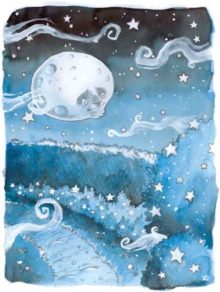 Whatever the weather is like the first twelve days of January indicates what the weather will be like for the next twelve months. Each day equals one month in succession.
Whatever the weather is like the first twelve days of January indicates what the weather will be like for the next twelve months. Each day equals one month in succession.
From Moon Magick
Debbie: Reading Candle Wax
Bridget Grimes: 310112_svyatki2_500
Mari: Reading Candle Wax
Ali: Notarikon
ALI: Notarikon

